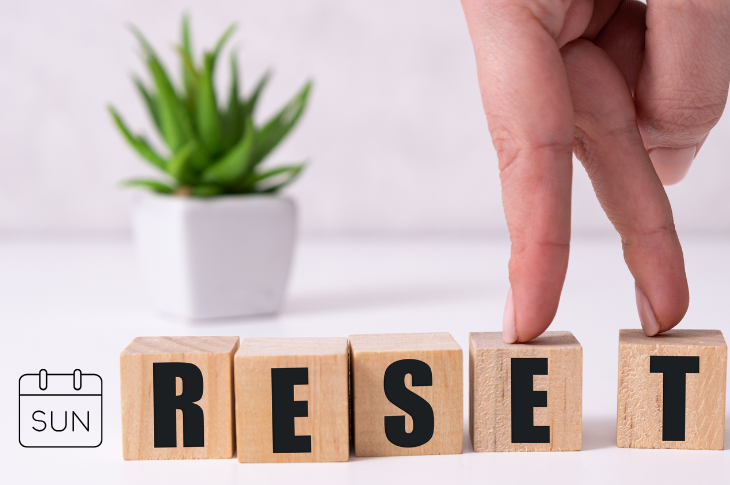
Stress is extremely common and will impact everyone at some point in their lives. However, if stress doesn’t go away, it can lead to issues relating to a person’s health, career, relationships, and other key areas. In September 2022, we published an article titled ‘5 Ways to Relieve Stress Naturally’ to help people find useful methods to manage their feelings of overwhelm. This article serves as part two, in which we explore five more ways to naturally relieve stress.
1. Connect with friends and family
One way that many people choose to deal with stress is to connect with their friends and family. This connection can take many forms. For example, some people may feel most comfortable reaching out to their loved ones via text message, while others may prefer to make a phone call. Additionally, some people find the company of their loved ones more comforting when they can see them in person. For those who are isolated or feel they have nobody to reach out to, it’s important to look for relevant support groups. This can help them connect with other like-minded people who can share advice and support based on real-life experiences.
No matter which route of communication a person chooses, the most important part is reaching out for help, support, and encouragement when they need it most. Whether a person needs advice, to vent their frustrations, or just a shoulder to cry on, connecting with people is very useful in reducing stress levels. There is absolutely no shame in being honest about stress, everyone experiences it to varying degrees throughout their lifetime. In fact, reaching out for help is one of the strongest actions a person can take when they feel overwhelmed.
2. Use calming breathing techniques
When people are stressed, one of the first things they’re typically told to do is take a deep breath. While this may seem like a futile method of relieving stress, using various breathing exercises can help people relax. This is especially true of techniques that require a person to focus solely on their breathing, rather than whatever is making them feel uneasy. These exercises can also help boost oxygen levels throughout the body while naturally calming the nervous system.
One of the most popular breathing techniques that people use to relieve stress is called the 4-7-8 technique. The idea is to inhale through the nose for four seconds, hold it there for seven seconds, and exhale for eight seconds via the mouth. However, this technique can be modified to fit anyone’s needs. For example, some people may prefer to make each stage last for slightly longer, and therefore follow a 5-8-9 pattern instead. Regardless of the exact technique, breathing exercises are a natural, easy, and effective way to reduce or relieve stress.
3. Focus on self-care
Self-care is something that people often take for granted, but it can have a huge impact on stress and mental health. The idea of self-care is very broad and can refer to many different activities. For example, some people consider taking a bubble bath to be the most beneficial form of self-care. Others prefer to practice self-care by doing yoga or reading a book. The type of self-care that works for each person depends on their interests, personality, preferences, and available resources.
The overall aim of self-care is to improve physical and mental wellbeing. In fact, some studies show that those who regularly practice self-care report significantly lower levels of stress than those who don't. Self-care is also thought to lead to a better quality of life and a lower risk of burnout. There is no right or wrong way to practice self-care as the best techniques are unique to each individual. However, taking time to practice some form of self-care is an essential part of life that can help naturally reduce stress levels.

4. Listen to music
There are many different reasons to listen to music, including the reduction of stress levels. In fact, studies have shown that listening to music can help promote a better mood while relieving feelings of stress. This is especially true of relaxing music. The way that music impacts the brain is very complex and can cause people to have physical and emotional reactions to what they’re hearing. When someone is enjoying music, their brain may release hormones that make them feel pleasure. This can then lead to an improved overall mood and a subsequent reduction in stress.
Some people partake in what’s known as music therapy to help relieve stress and other mental health concerns. Music therapy may involve listening to, learning, and/or creating music, depending on the most effective methods for each individual. This can be a great option for those who don’t find talking therapies to be an effective or accessible option. For example, people who are non-verbal can benefit greatly from expressing themselves through the medium of music.
5. Follow a healthy diet
Interestingly, stress and food are linked in various ways. For example, studies have suggested that people who eat processed foods report feeling higher levels of stress than those who follow a healthy diet. This may be due to the fact that people who lack nutrients can develop deficiencies and a decreased level of overall health, which can lead to increased feelings of stress. Additionally, when a person is stressed, they may reach for processed ‘comfort’ foods and eat more than they need, which can also impact their health negatively. This is likely to increase their stress while having a negative impact on their mood. This can become a self-fulfilling cycle until it’s broken by the introduction of healthier eating habits.
Eating whole foods helps nourish the body so it’s ready to tackle any challenges that arise. Stress will come and go throughout life, but the way people equip themselves to handle it is the most important part. A body that’s well nourished and free from deficiencies of key nutrients is likely to be able to handle stress better than someone with an unhealthy diet.
Key takeaways
Here are the key points to remember about relieving stress naturally:
- Stress is a natural part of life, but chronic stress can lead to serious issues ranging from health concerns to relationship breakdowns.
- Connecting with friends, family, or other peers via phone, text, in person, or even a support group can help reduce stress levels.
- There are various types of breathing techniques that can help naturally calm the nervous system and increase oxygen levels in the body, which can then lead to a reduction in stress.
- Self-care can come in many forms and should be a priority as it can help people prevent and manage stress.
- Music is an incredibly useful tool when looking to reduce stress, whether it’s listening to, learning, writing, or creating music.
- Following a healthy diet can have a substantial impact on stress levels as proper nutrition can better equip the body to deal with stress.










